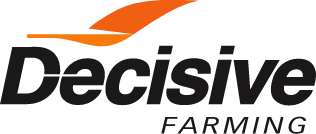When you hear the words “farm fleet,” you might picture a large operation with dozens of pick-up trucks and a long lineup of colour-coordinated tractors, sprayers, swathers and combines. But when it comes to managing and protecting these sizable investments, the quantity doesn’t matter (and neither do make, model or colour).
“Even farms with just five to 10 pieces of equipment should take advantage of a fleet product,” says Susan Cooley-Pottier, Senior Product Manager at TELUS. “It’s a proactive way to prevent theft, boost vehicle maintenance and keep your people safe.”
As your season begins, here are five considerations for choosing the right fleet management tool for your farm.
What should a fleet management tool offer?
Cooley-Pottier says a farm fleet tool should ideally provide a whole-operational view of a farm’s fleet, starting with one device as a base account, and additional devices added in each vehicle as needed. She recommends an agnostic device like TELUS Fleet Management solutions, made by Raven Connected, a technology available through Decisive Farming by TELUS Agriculture, as an in-vehicle plug-and-play solution that can be easily managed by an app, with trusted users added to review collected data.
“TELUS Fleet Management solutions is an all-in-one device that includes dual cameras and tracking features,” Cooley-Pottier says, adding that security alerts are sent to the user when suspicious activity is detected. Beyond these features, the device collects a range of data through real-time vehicle monitoring to share with the user depending on the available connection type for that vehicle. With an OBD-II, or 9-pin connection, a user can collect engine codes, fuel levels, battery voltage, on/off and speed, and access a WiFi hotspot for working on the go. Video footage is stored locally on the device and event footage (like accidents, unusual activity, or a sudden change in movement) is sent to cloud storage automatically.
Who is responsible for managing your fleet?
Farm safety is everyone’s responsibility, but depending on the size of a farm operation, security could be left up to a single person or a team of people. An easy-to-use device is essential, especially when people of all ages and experience will be using farm equipment.
TELUS Fleet Management solution is managed through a single app with the ability to connect to multiple devices, meaning users can easily get in touch with one another should the need arise. Messages and reminders can be broadcast across all units within the fleet, Cooley-Pottier adds, through a dispatch messaging system as a quick way to reach all employees at once. With built-in vehicle tracking, the main user accessing the platform dashboard can keep a close eye on each vehicle, improving employee accountability and reducing the risk of accidents.
“From a farm owner’s perspective, I’d like to know not only where my equipment is, but also who is using it – and is it being treated the way it should be?” says Blair Mitchell, Field Operations Specialist at Decisive Farming by TELUS Agriculture.
Where are vehicles and equipment located?
This “W” refers to both the physical location of a farm’s vehicles and equipment and its current status. Tracking the usage and location of machinery can help identify opportunities for efficiency, with additional features like geofencing and route tracking to enhance data and discover ideal driving behaviours.
“Knowing where and when a farmhand entered the field, and being able to track progress, goes a long way in maximizing productivity,” Mitchell notes.
“And from a safety perspective, the Raven system sends an alert when unusual activity has been detected, for example, if a vehicle has been idling,” Cooley-Pottier adds, allowing the main user to check in to see if there’s a problem with the vehicle (or user) in question.
For the time being, Poppel’s focus is on a farm fuel management product that can help streamline fuel-handling processes, aid in the reduction of logistics costs and increase accountability.
When might a tool come in useful?
Vehicles and equipment need maintenance, repairs, and replacements, and breakdowns rarely happen at convenient times of the year. With custom reports, including stats like fuel usage, engine runtime and maintenance recommendations, farmers can make proactive decisions to avoid equipment downtime at crucial points of the season.
“There are really complex activities that happen on a farm, especially around harvest time,” Cooley-Pottier adds. “Plugging your equipment into a solution allows you to optimize efficiency, like seeing a grain truck on the app heading back to the yard that needs to be unloaded.”
As a bonus, using a fleet management tool with built-in motion detection and stored video footage can help support an insurance claim should an incident happen. “We had somebody back into the side of our truck [in a parking lot], which shook the vehicle and initiated the camera to turn on,” Mitchell describes. “It was a good way to save some money on a repair, as the camera captured that it wasn’t our fault.”
Why is fleet management important?
There’s substantial financial value attached to a farm’s fleet of vehicles, and ensuring your machinery is protected and ready to go when needed provides peace of mind throughout the season. But safety and security apply to more than equipment.
“People are the most valuable asset on a farm,” Cooley-Pottier emphasizes. “Getting alerts that a vehicle has been idling allows you to ask more questions and find out if someone is stuck or in trouble,” she says. “And beyond that, farmers have families, so there’s a personal use-case too,” she emphasizes, noting the added safety provided when a device is installed in an on-farm vehicle that’s also used for personal reasons.
“It’s all about a cohesive efficiency strategy for your farm management.”
Visit www.decisivefarming.com/Fleet to learn more about TELUS Fleet Management solutions.


